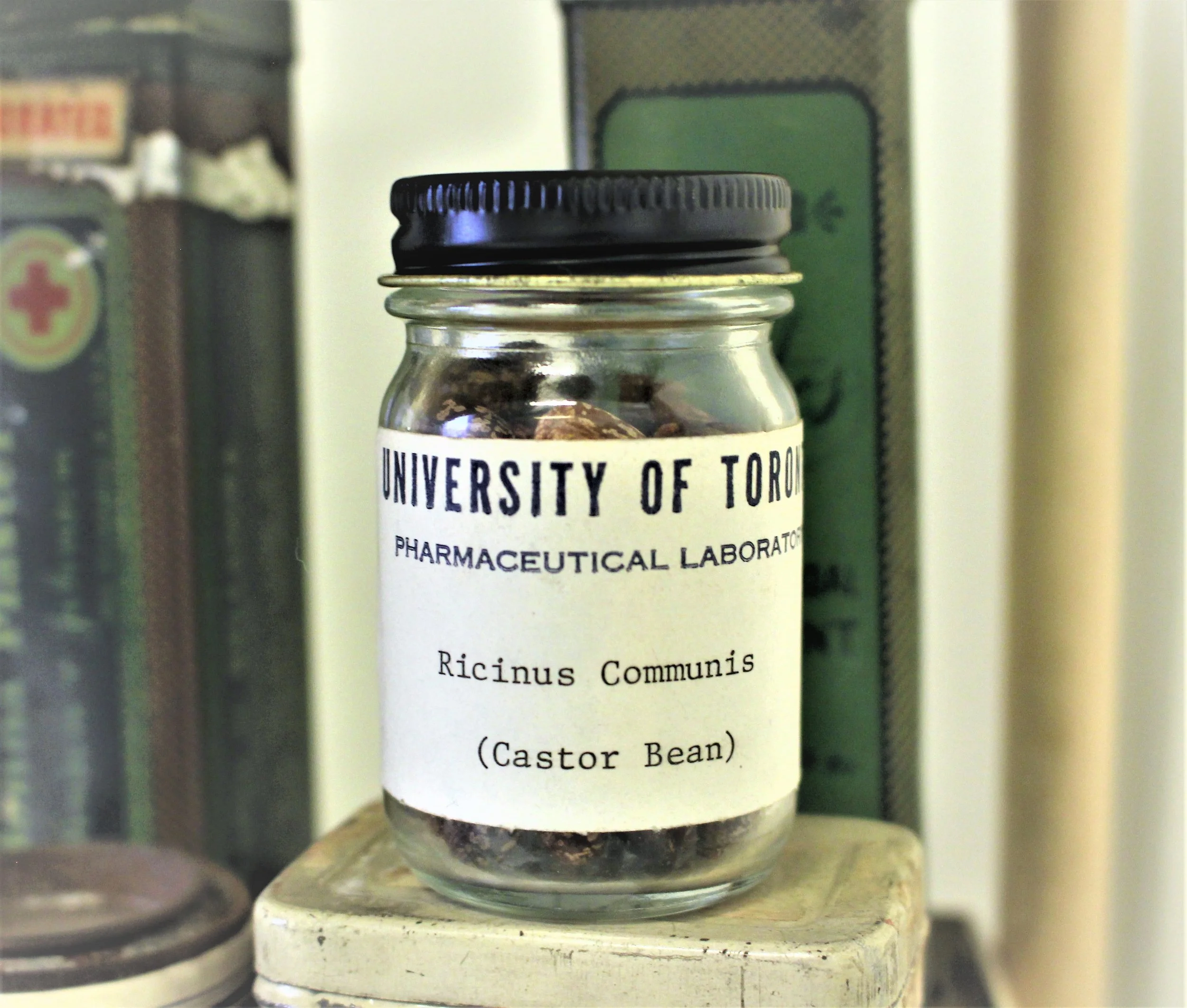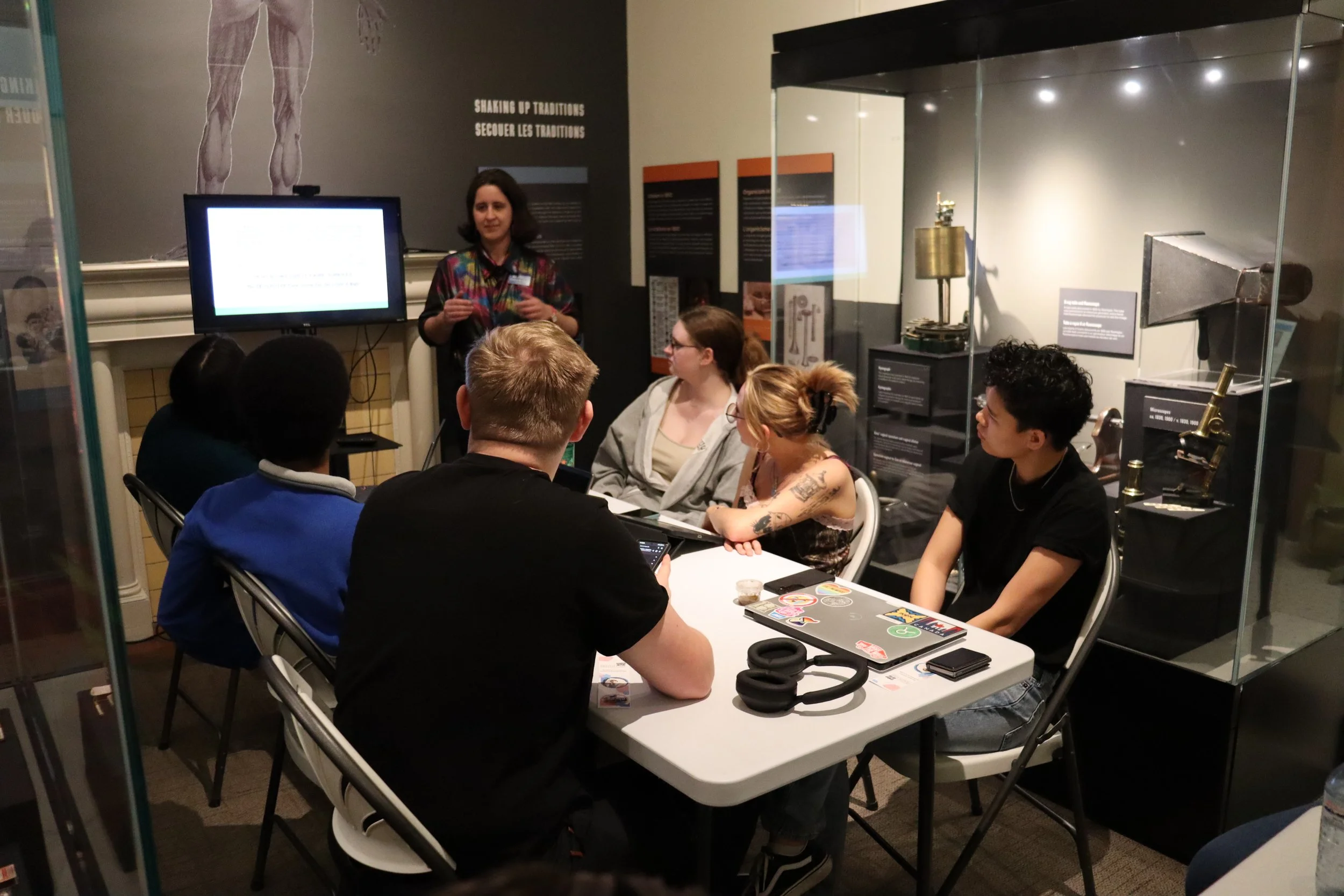RESEARCH
Research at the Museum
The Canadian Museum of Health Care supports and promotes research that deepens understanding of the history of medicine, health care, and the experiences of patients and practitioners in Canada. With a collection of over 35,000 artifacts and an extensive archive of documents, photographs, and reference materials, the Museum serves as a valuable resource for academic and private researchers, students, authors, curators, and health care professionals.
Online Catalogue
The Canadian Museum of Health Care supports research into the history of health, medicine, and caregiving through access to its rich collections and archival materials. We welcome inquiries from academic researchers, students, and independent scholars.
Researchers can explore our online museum catalogue to search and browse our collections. To access our research catalogue, click here.
This searchable database offers detailed records of thousands of artifacts and documents held by the Museum, with new items added regularly. Please contact us to learn more or to schedule a visit.
We welcome inquiries from individuals conducting academic, professional, or personal research. Areas of research may include medical instruments and technology, nursing and hospital history, public health, pharmaceutical practices, and more. The Museum does not hold patient or death records.
Our staff can assist you with:
Access to artifacts and archival materials
Reference support and research guidance
Image licensing and reproduction requests
Consultation for publications, exhibitions, and educational projects
How to Get Started? To request access to our collections or book a research appointment, please contact us through the contact form or email us with details about your project. We recommend reaching out in advance, as access is by appointment only. The Museum cannot accommodate walk-in research visits.
Teaching Health Care Humanities Symposium
The Canadian Museum of Health Care is proud to co-organize the Health Care Humanities Symposium, an annual interdisciplinary event held in partnership with Queen’s University. The first symposium was created as part of a series of international health humanities workshops funded through the Matariki Network and was so successful that it has become an annual event.
The symposium brings together scholars, students, artists, and health professionals to explore research, teaching, and interpretation at the intersection of healthcare and the humanities.
Held each year in collaboration with Queen’s University and other Matariki Network institutions, the symposium offers a platform for critical and creative engagement with topics such as medical history, narrative medicine, disability studies, public health, and museum interpretation. This international initiative reflects the Museum’s commitment to advancing the role of the humanities in shaping more empathetic, inclusive, and reflective health care systems.
Check back for the 2026 Symposium Schedule
Academic Partnership and Programs
The Canadian Museum of Health Care actively collaborates with academic institutions to support interdisciplinary learning, research, and professional development at the intersection of health, history, and culture. Through these partnerships, students and faculty gain hands-on experience in museum practice, public history, and health humanities while contributing to the Museum’s educational and curatorial work.
We offer a variety of opportunities for academic engagement, including:
Research Support for undergraduate, graduate, and faculty-led projects
University Class Visits to the Museum, including tours and customized workshops using original artifacts, led by our Curator.
Curator-Led Outreach, where our Curator brings selected objects and expertise into university classrooms
Course Collaborations, guest lectures, and curriculum-linked program development
These programs foster critical thinking, creativity, and public engagement while demonstrating how museums contribute to broader conversations about health, equity, and care. For more information or to explore partnership opportunities, please contact us today.




